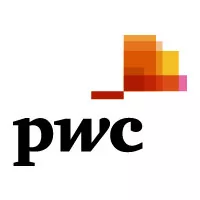In brief
Since the outbreak of the epidemiological crisis, the demand for medical protective equipment has been exacerbated in the last days and is expected to continue increasing significantly in the imminent future. Therefore, it is in the European Union interest that the Commission takes an immediate action of a limited duration in order to ensure that exports of personal protective equipment as detailed in section A, are subject to an authorization in order to ensure adequacy of supply in the Union in order to meet the vital demand.
Due to the urgency of the situation, justified by the fast spreading of the COVID-19 infection, the measures provided for in this Regulation should be taken in accordance with Article 3(3) of Regulation (EU) 2015/479.
In detail
A.Protective Equipment
The equipment for which the export licence is required includes the following :
- Protective spectacles and visors
- Face shields
- Mouth-nose protection equipment
- Protective garments
- Gloves
B. Export authorization
An export authorization shall be required for the export outside the Union of personal protective equipment listed above, whether or not originating in the Union.
Such authorization shall be granted by the competent authorities of the Member State where the exporter is established and shall be issued in writing or by electronic means. Without the production of such export authorization, the exportation is prohibited.
This is an export authorization valid in all Member States of the European Union until its expiry date.
C. Procedural aspects
1. If the protective equipment is located in one or more Member States other than the one where the application for export authorization has been made, that fact shall be indicated in the application. The competent authorities of the Member State to which the application for export authorization has been made shall immediately consult the competent authorities of the Member State or States in question and provide the relevant information. The Member State or States consulted shall make known within 10 working days any objections it or they may have to the granting of such an authorization, which shall bind the Member State in which the application has been made.
2. The process of applications for export authorizations within a period of time to be determined by national law or practice, which shall not exceed 5 working days, from the date on which all required information has been provided to the competent authorities. Under exceptional circumstances and for duly justified reasons, that period may be extended by a further period of 5 working days.
3. In deciding whether to grant an export authorization under this Regulation, all relevant considerations should be taken into account including, where appropriate, whether the export serves, inter alia:
- to fulfil supply obligations under a joint procurement procedure in accordance with Article 5 of Decision No 1082/2013/EU of the European Parliament and of the Council of 22 October 2013 on serious cross-border threats to health (2);
- to support concerted support actions coordinated by the Integrated Political Crisis Response Mechanism (IPCR), the European Commission or other Union institutions;
- to respond to the requests of assistance addressed to and handled by the UPCM (Union Civil Protection Mechanism), by third countries or international organizations;
- to support the statutory activities of support companies abroad that enjoy protection under the Geneva Convention, and in so far as they do not impair the ability to work as a national support company;
- to support the activities of the World Health Organization's (WHO) Global Outbreak Alert & Response Network (GOARN);
- to supply foreign operations of EU Member States including, military operations, international police missions and/or civilian international peacekeeping missions;
- for the supply of EU and Member State delegations abroad.
4. The use of electronic documents for the purpose of processing the applications for export authorisation is possible.
D. Final provisions
This Regulation shall enter into force on 14 March 2020 and apply for a period of six weeks. It shall automatically cease to apply at the end of this six weeks period.
The takeaway
The PwC dedicated Customs team is ready to provide support in relation to advise whether an export license will be required and/or in relation to obtaining export licences, where necessary.
The content of this article is intended to provide a general guide to the subject matter. Specialist advice should be sought about your specific circumstances.




